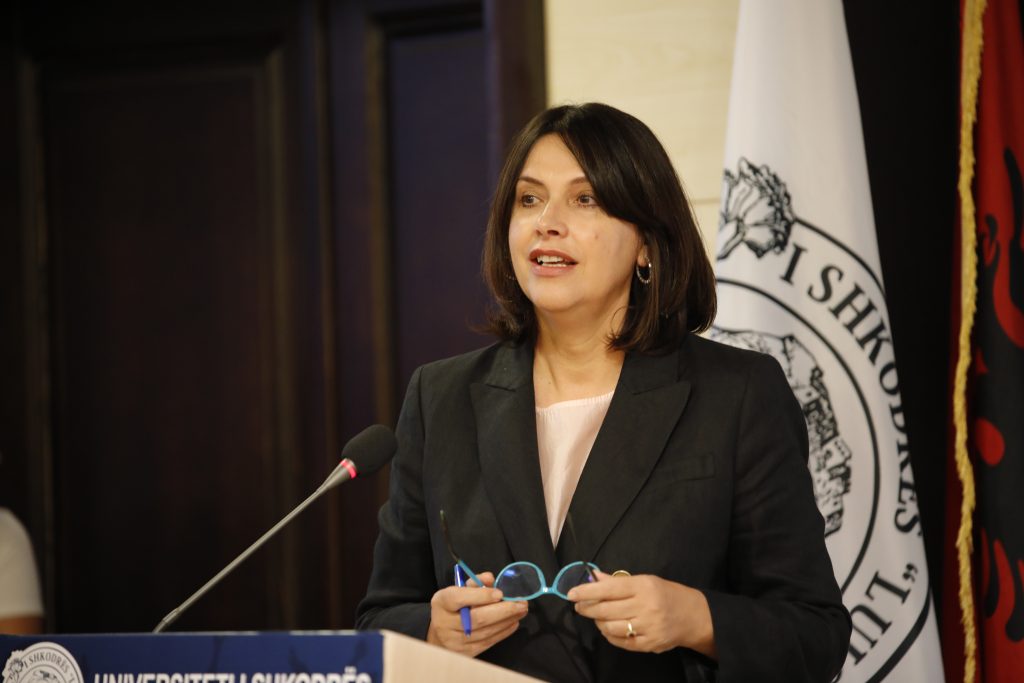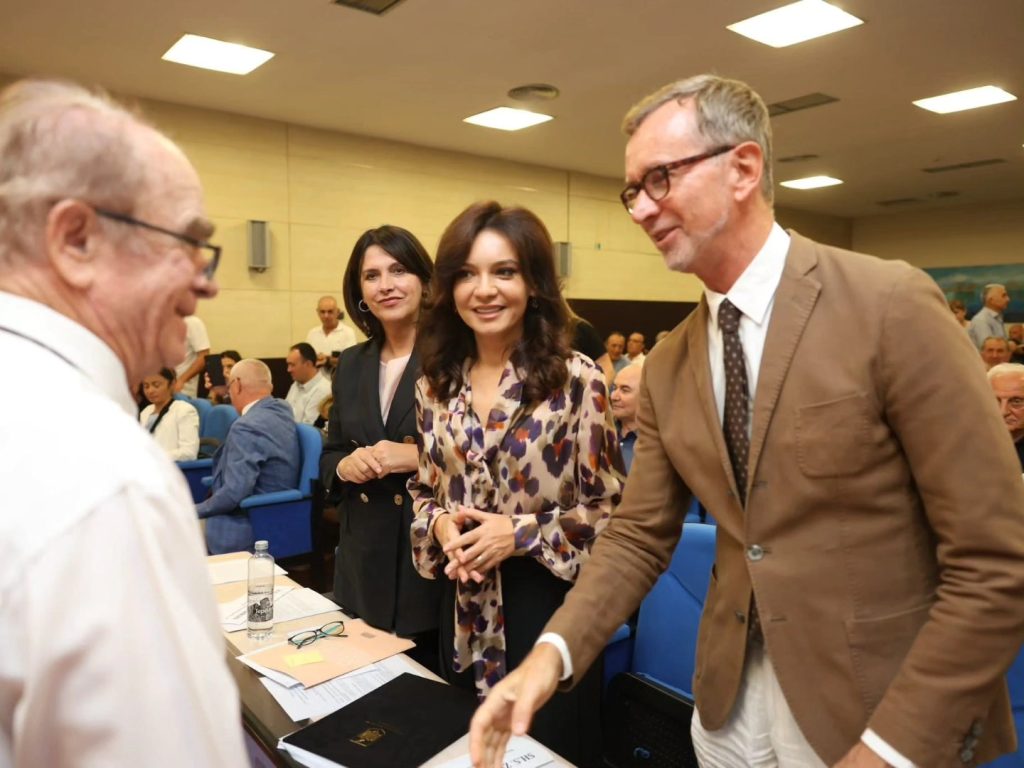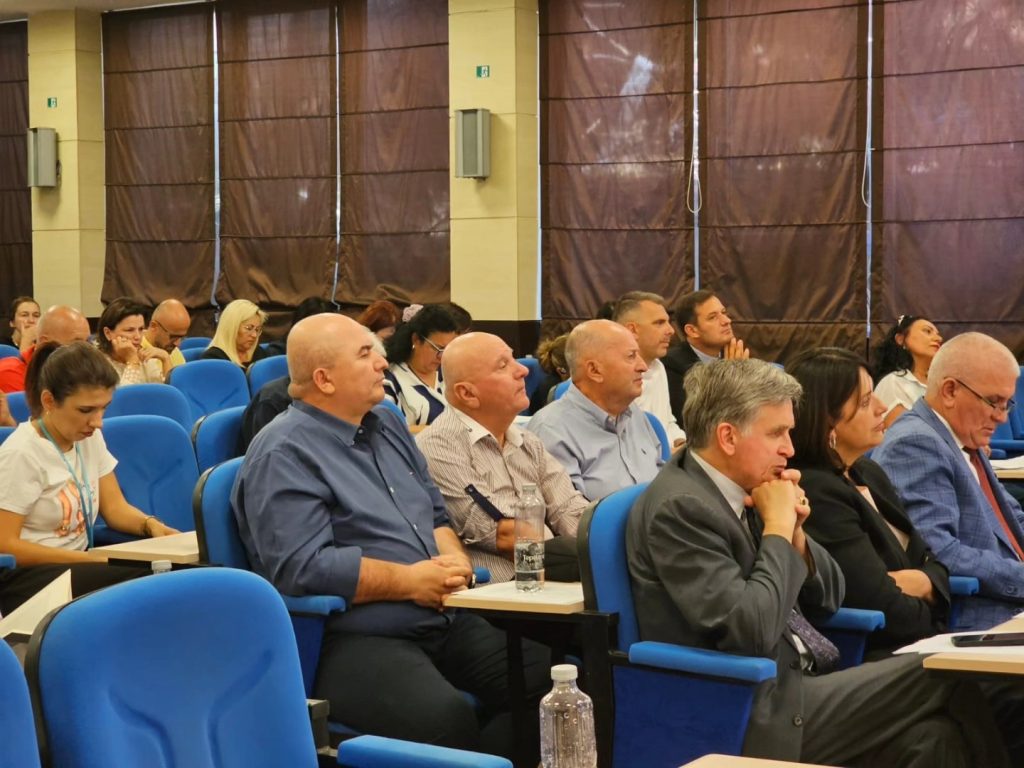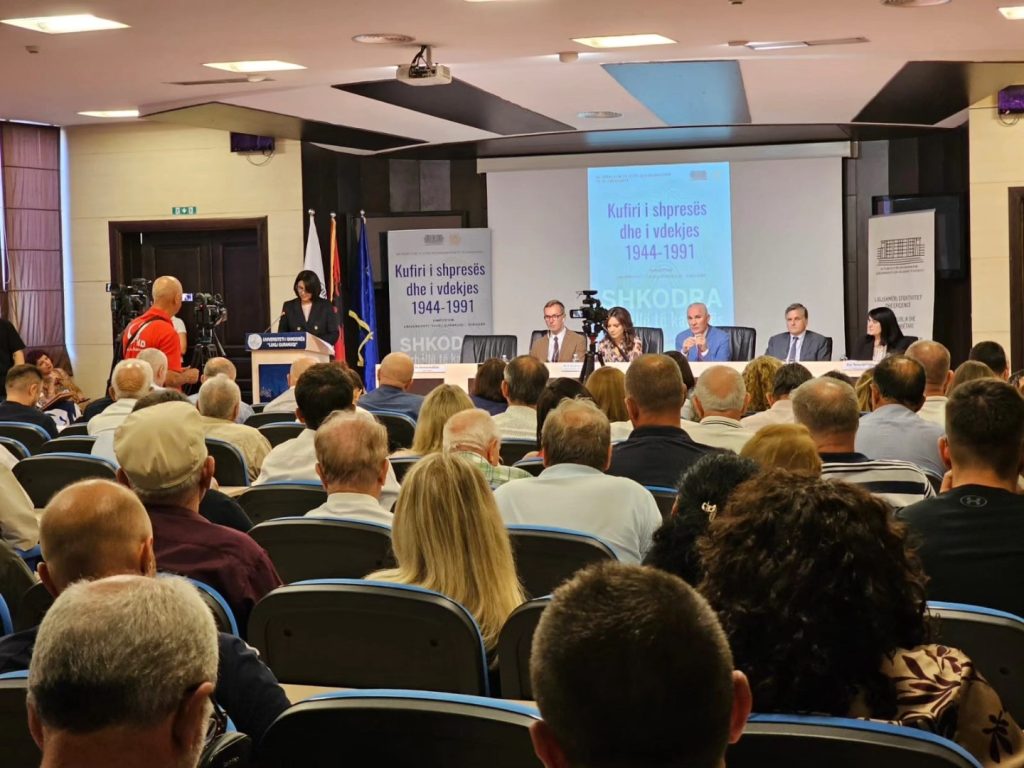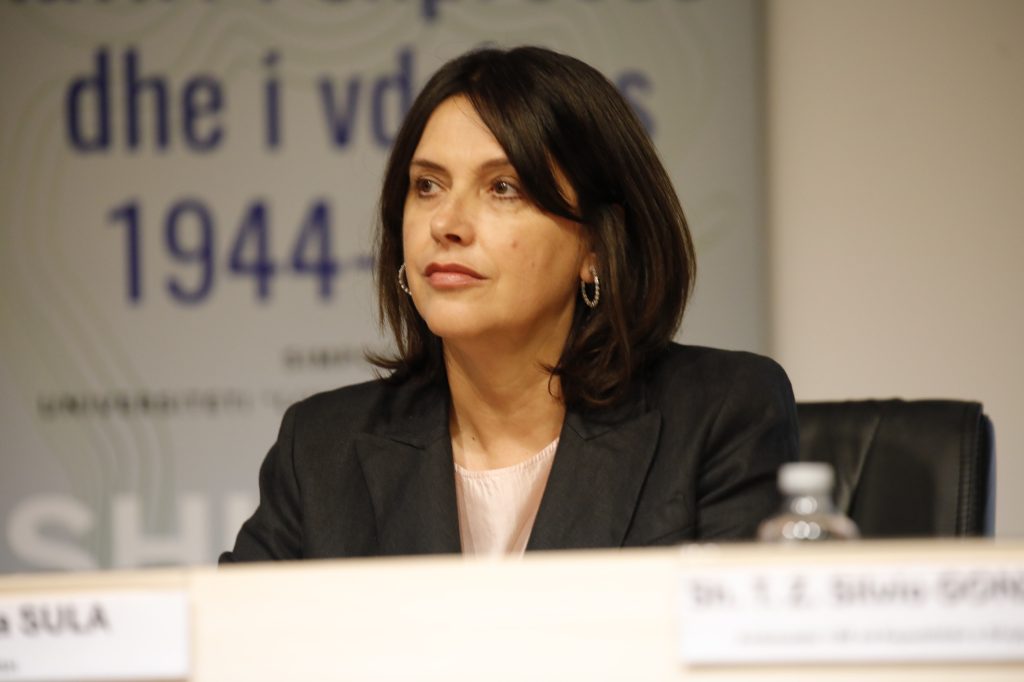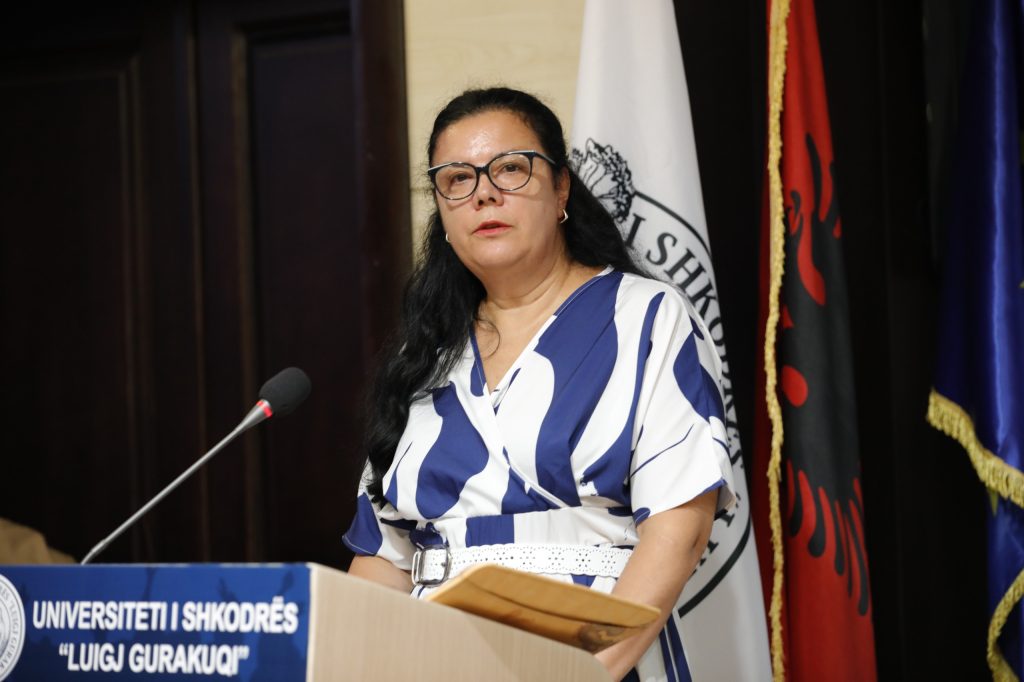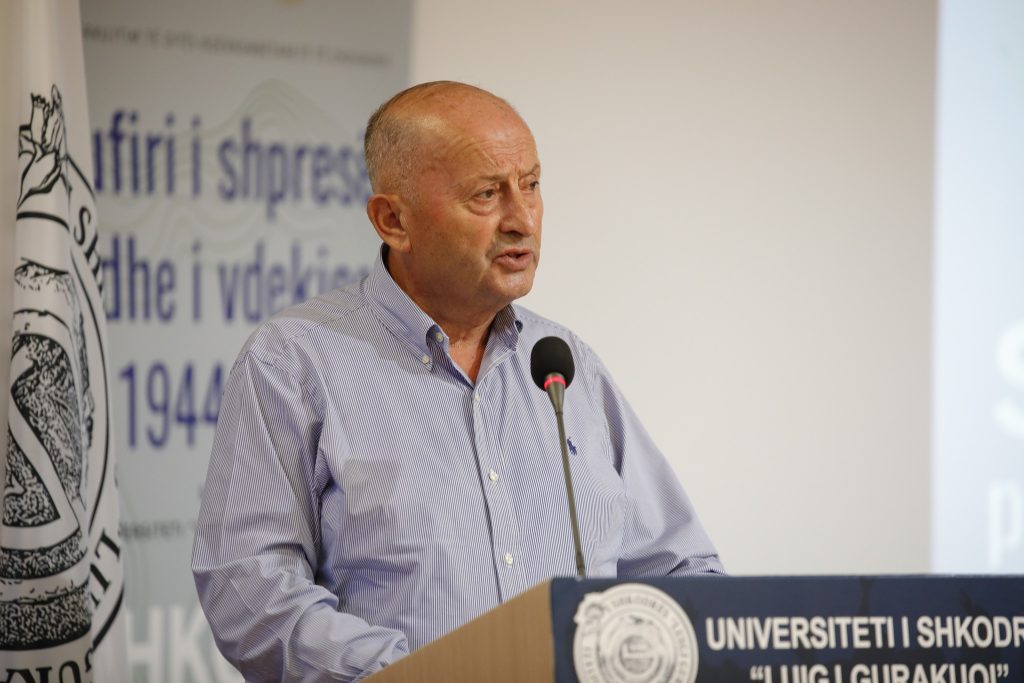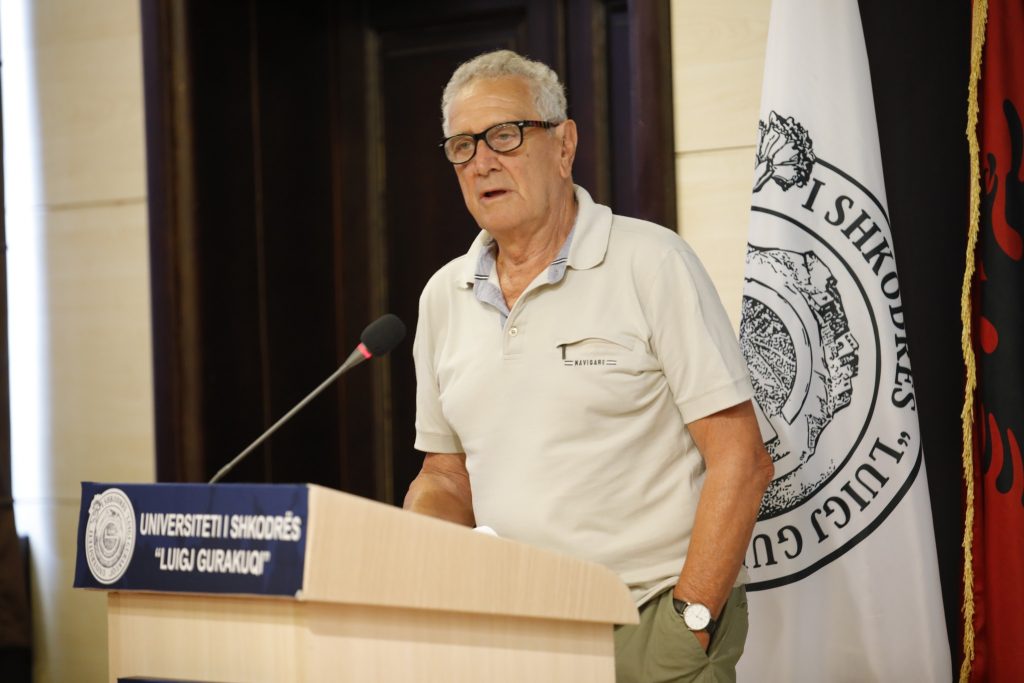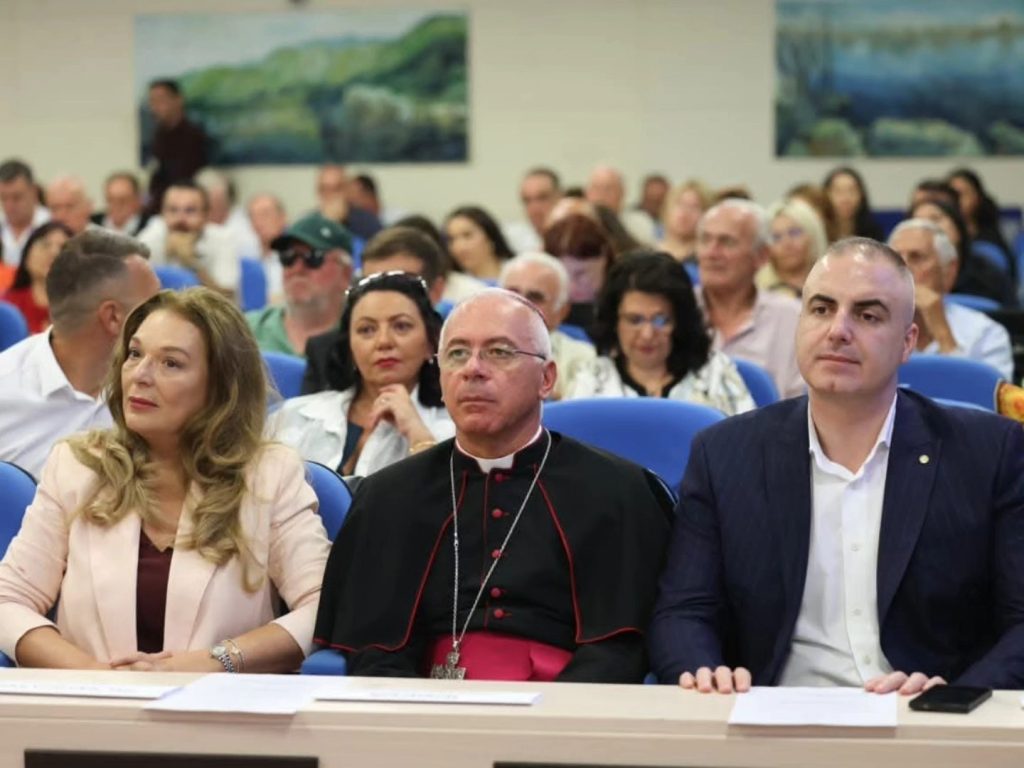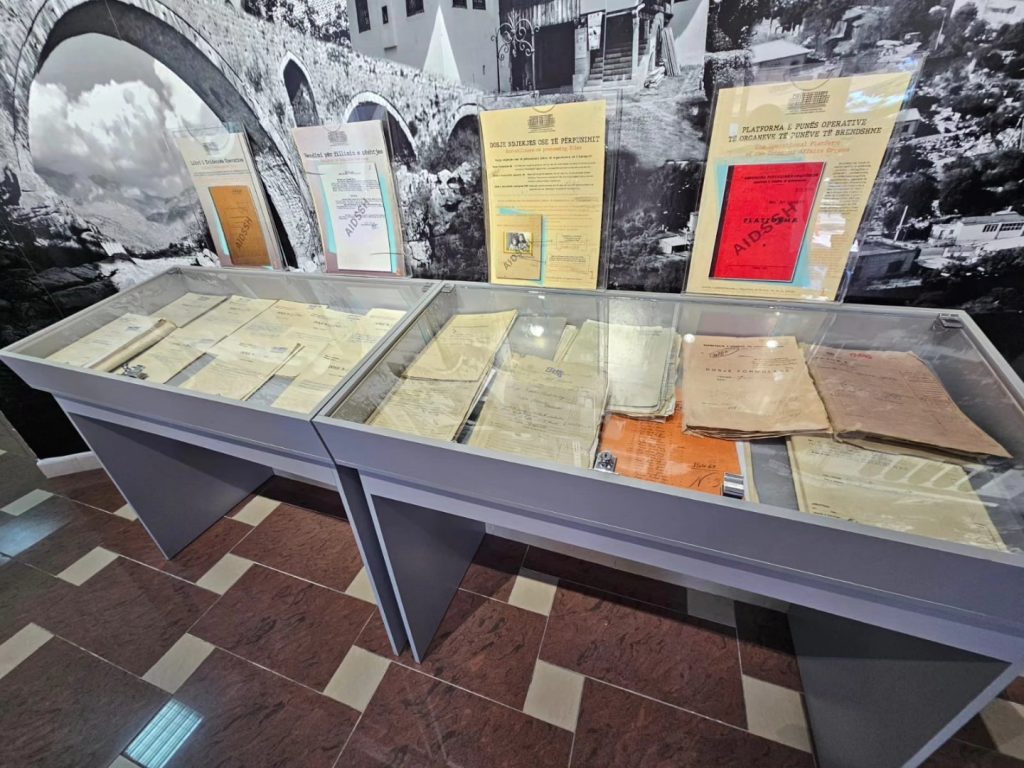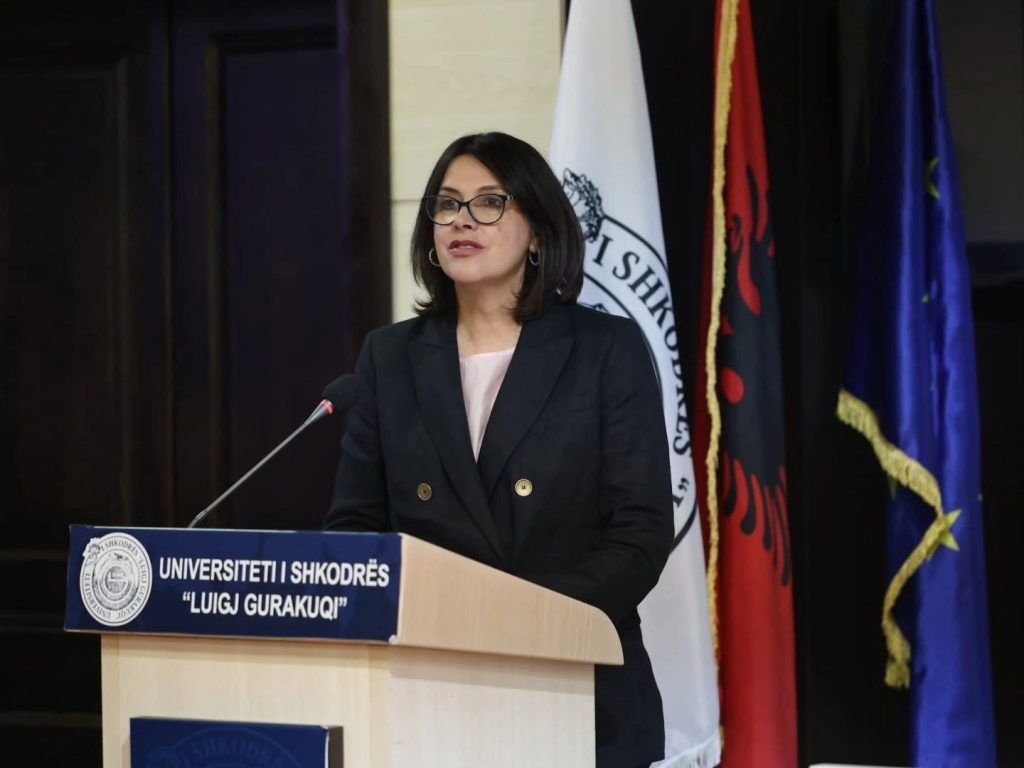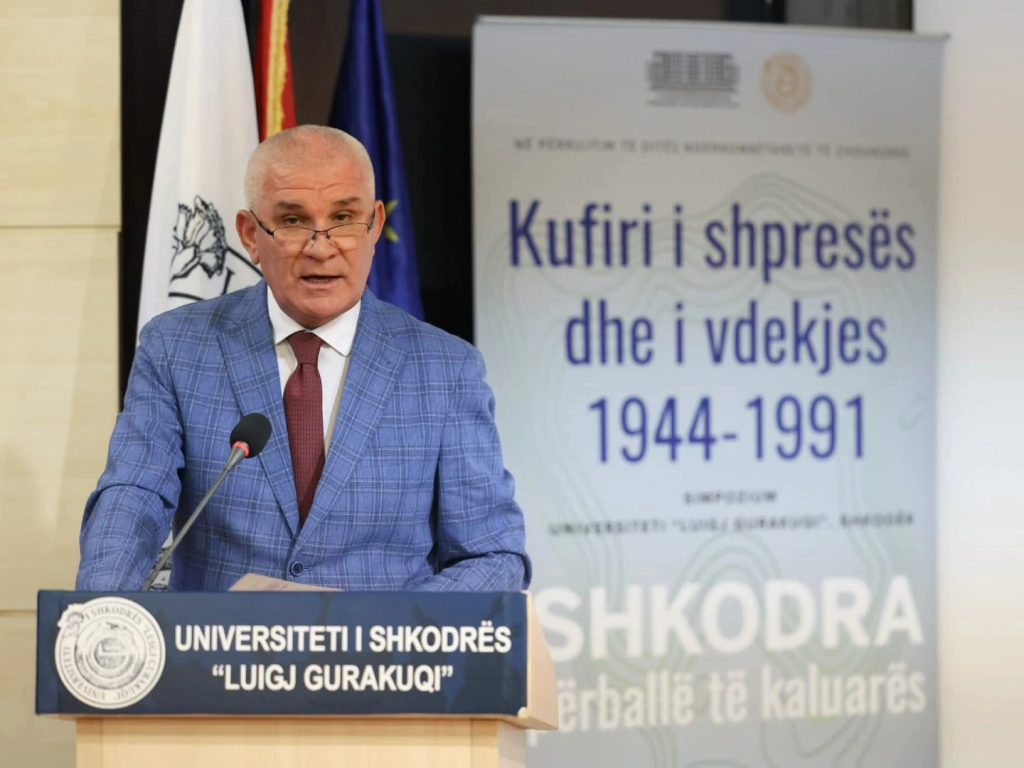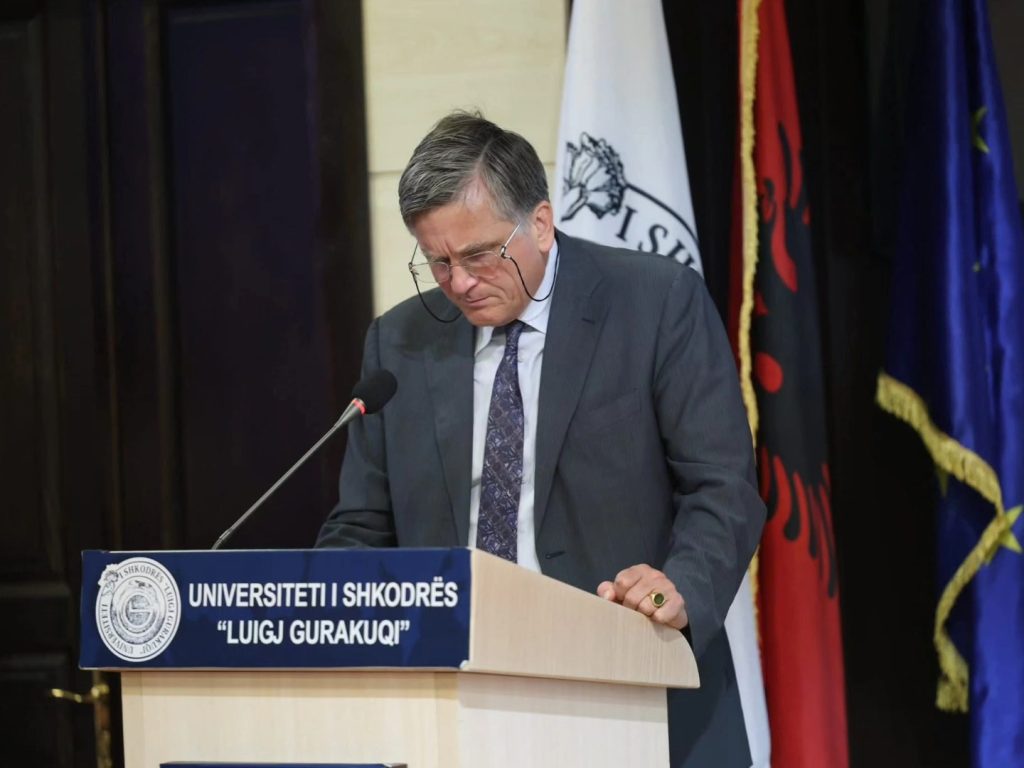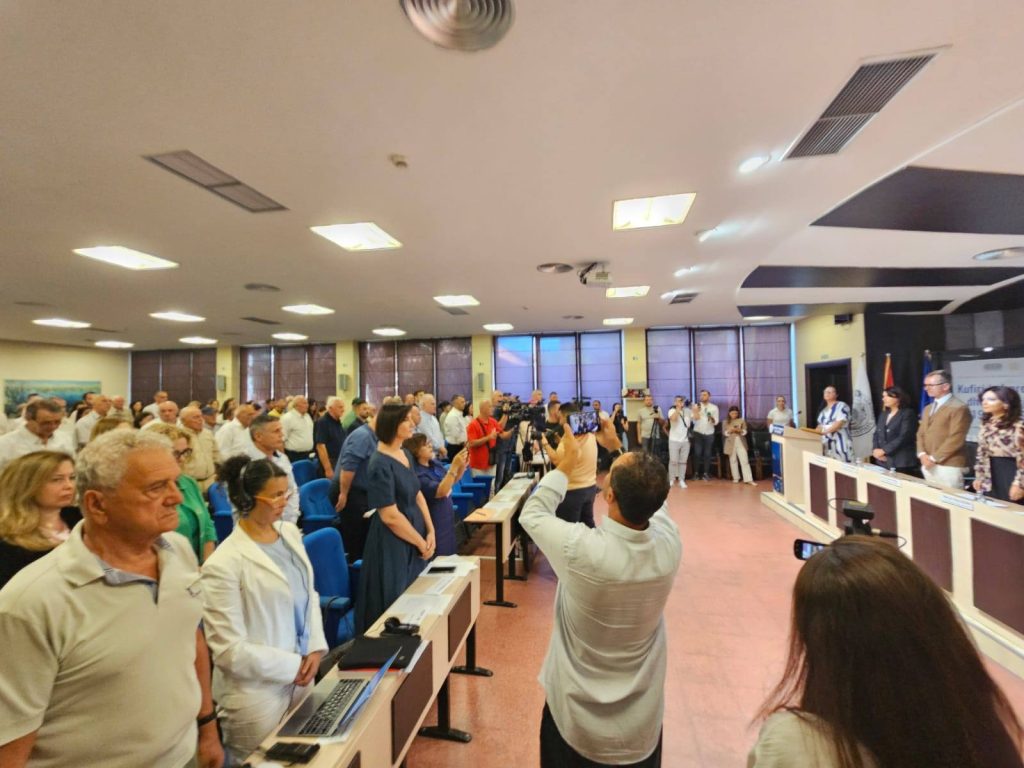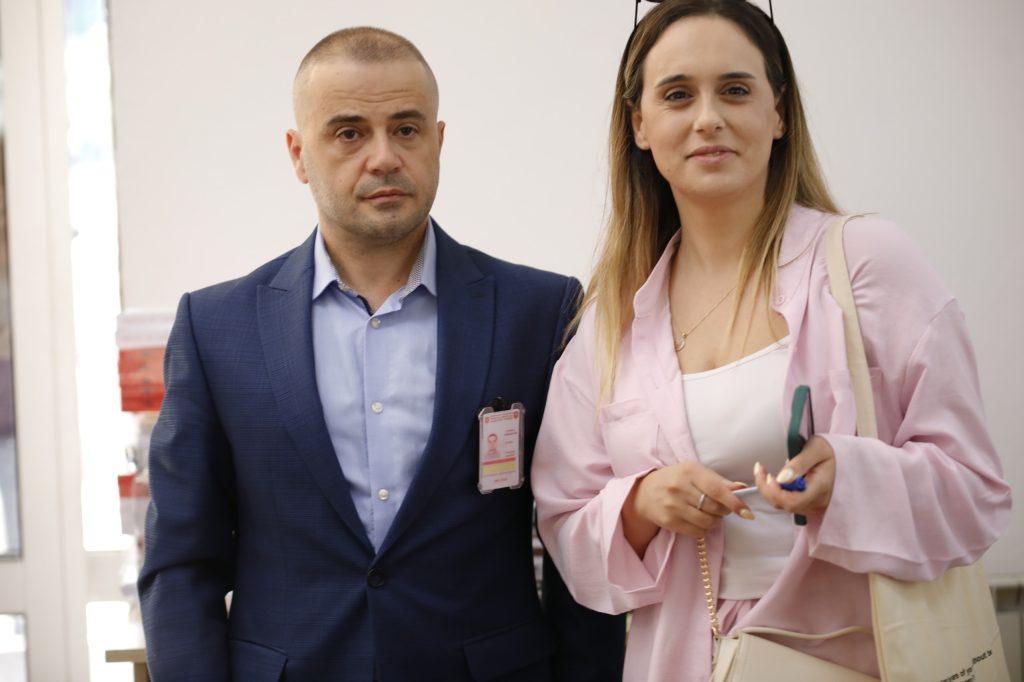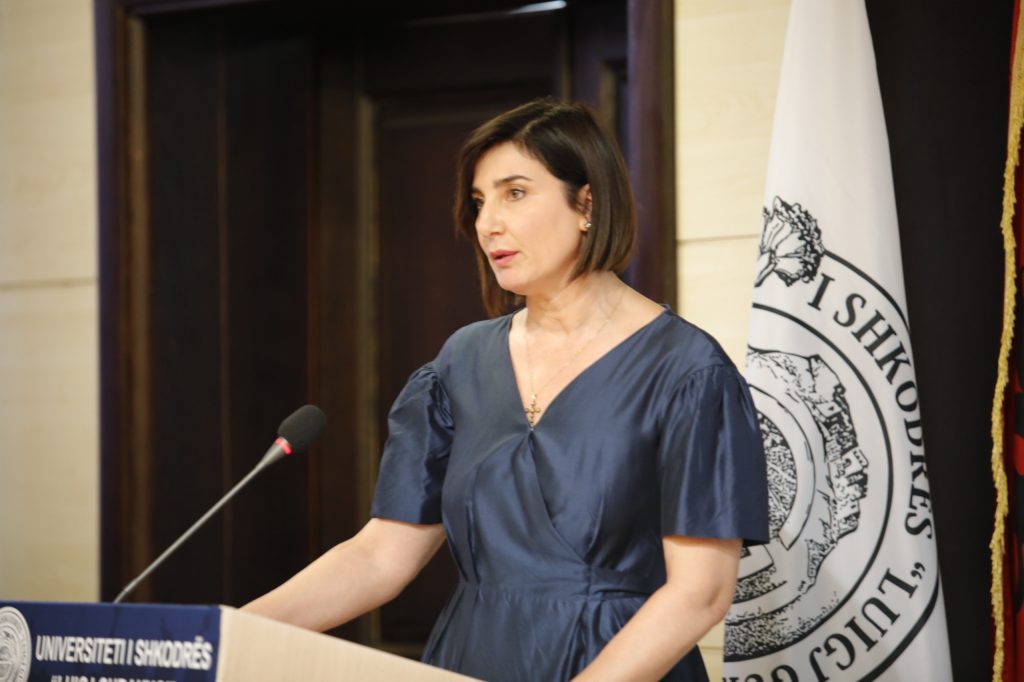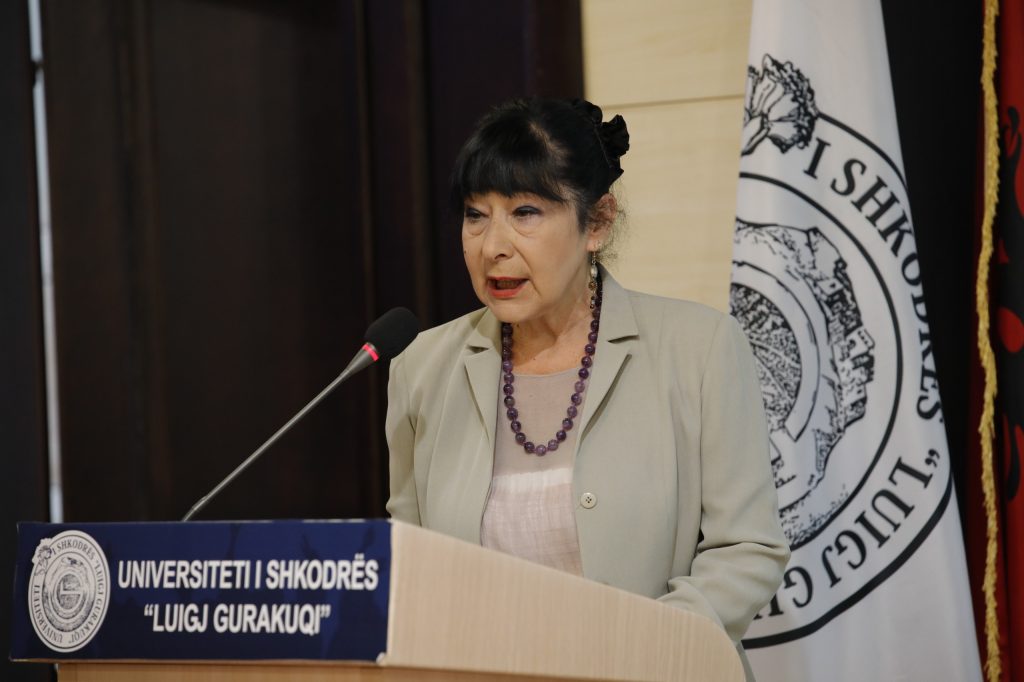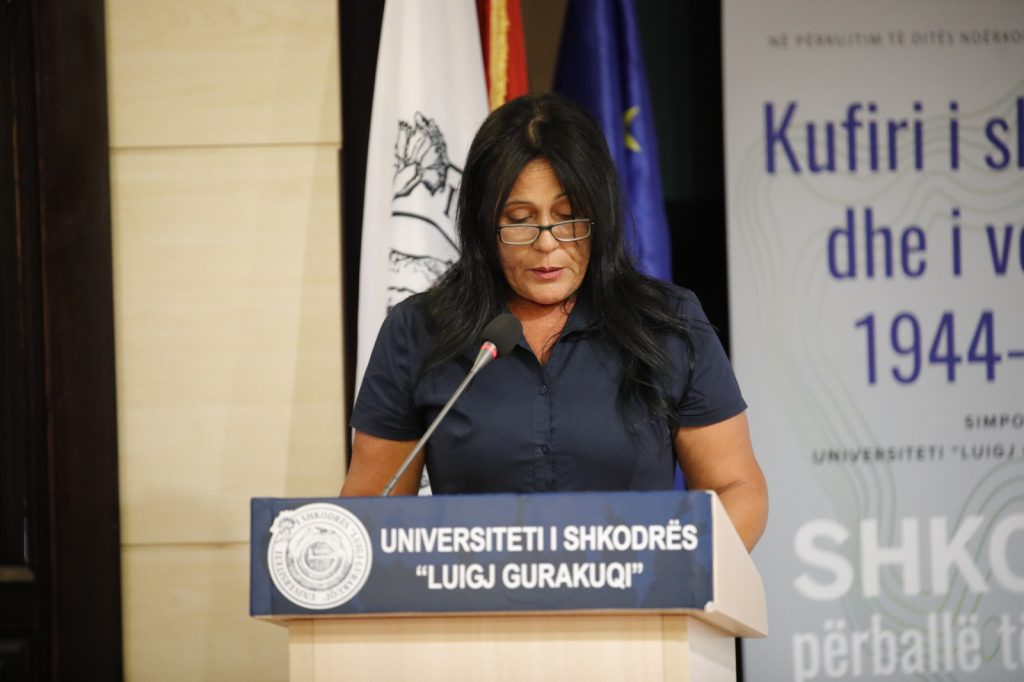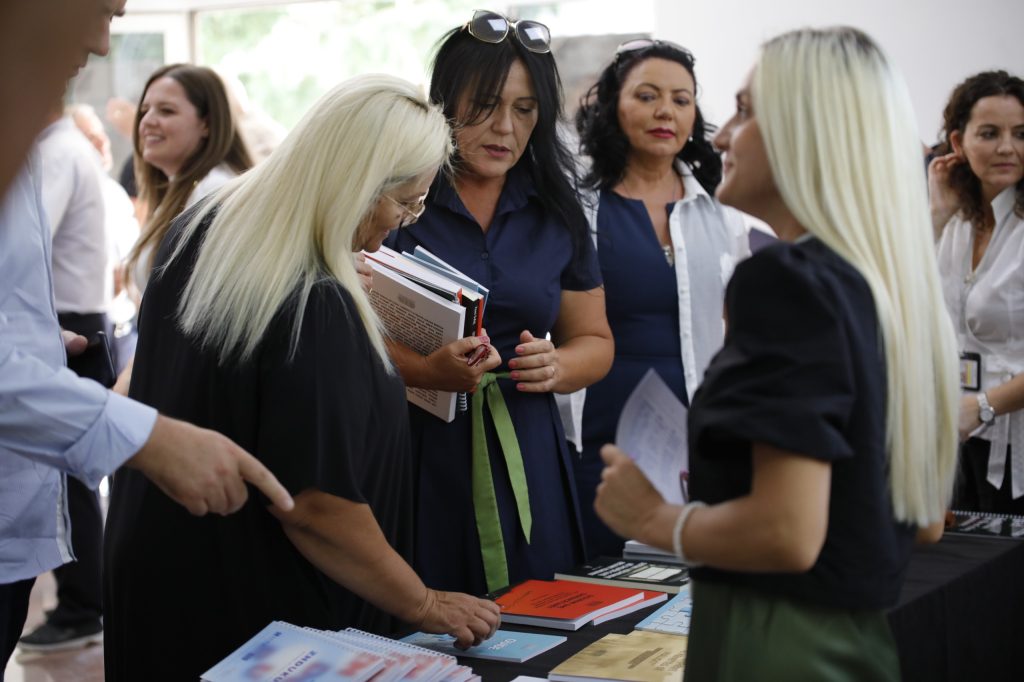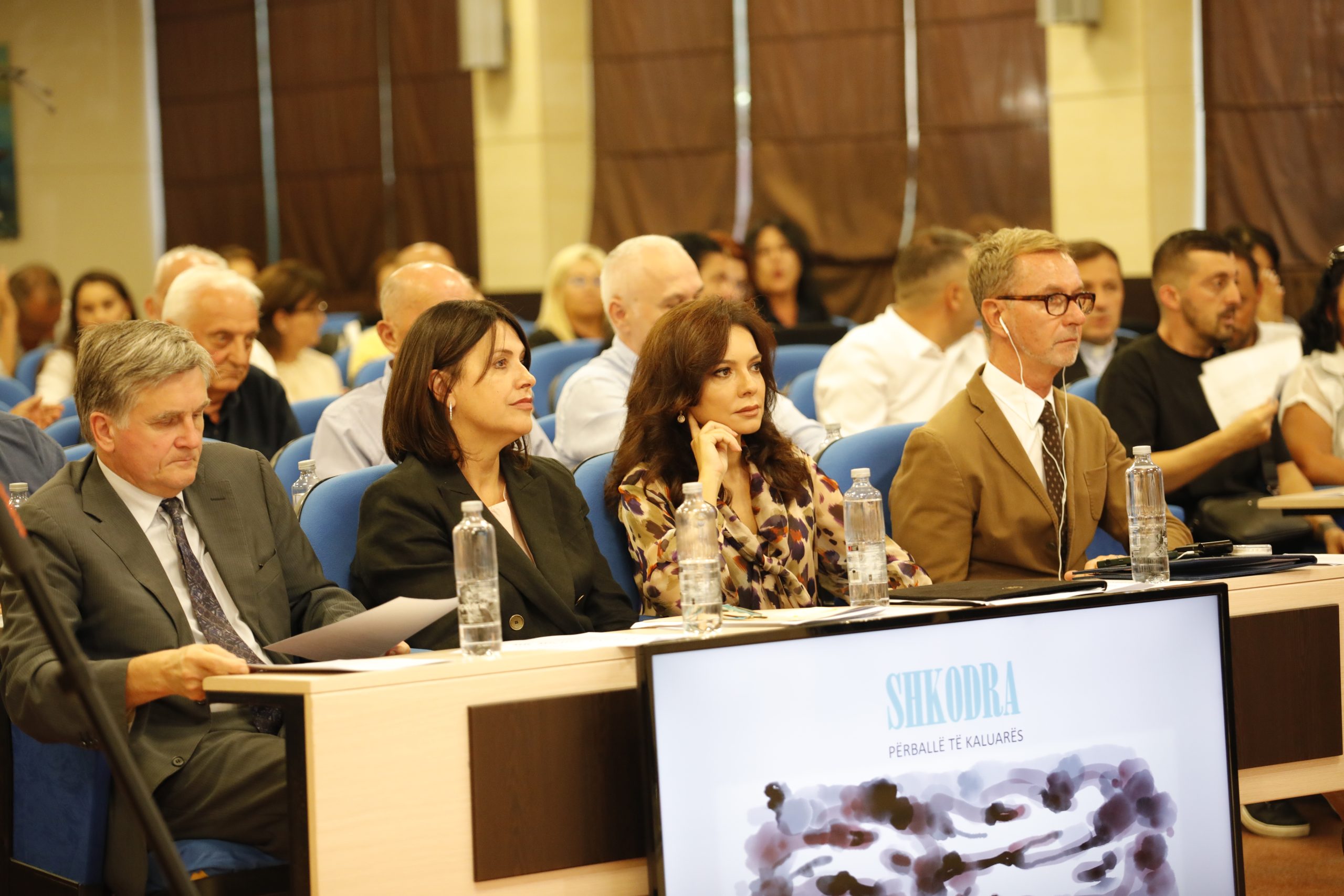Shkodër, August 28 — In the framework of August 30, the International Day of the Disappeared, in cooperation with the “Luigj Gurakuqi” University of Shkodër, the Authority held a symposium on the theme: “The Border of Hope and Death, 1944–1991. Shkodra Facing its Past.”
The event was honored by the presence of the Speaker of Parliament, Elisa Spiropali, as well as the EU Ambassador and the OSCE Ambassador—two international institutions that, since 2017, have closely cooperated with the Authority in addressing the issue of missing persons during the communist regime in Albania.
Also in attendance were MP Greta Bardeli, representatives of public institutions, representatives of religious communities, relatives of the victims, and survivors.
Speaker of Parliament, Elisa Spiropali, emphasized :
“This symposium is not merely a tribute to the victims, but an act of confronting the past. An act that belongs to the whole society, without political or ideological distinctions. It is the duty of democratic institutions, including the Parliament, to guarantee support for the work of institutions such as the Authority of Files and the Commission for the Search for the Disappeared. The pursuit of justice is not revenge, but an effort to restore denied dignity. Democracy cannot be fulfilled without the punishment of crimes and the recognition of victims.”
EU Ambassador, Silvio Gonzato, stated that confronting the past is a necessity, not an option
“Confronting the killings at the border and the phenomenon of disappearances is a matter of human dignity. We urgently need the Council of Ministers to approve a coordinating mechanism among the relevant actors to enable the search and exhumation of those killed during the communist regime. Coming to terms with the past is a collective responsibility, where everyone has a role to play. Democracy is strong only when transitional justice is implemented.”
He also conveyed the concern of many former persecuted individuals who are still awaiting compensation, emphasizing that this process cannot be postponed indefinitely. The Ambassador also mentioned the cooperation with ICMP in drafting protocols for the search for missing persons.
Authority Chairwoman Gentiana Sula, acknowledged delays in the progress of the process for the recovery of the bodies of those who disappeared during the communist regime:
So far, administrative steps have been taken, but peace for the families who still do not have a grave for their loved ones will come only when the first excavations begin.”
These are not graves that have been forgotten somewhere; these are graves that were deliberately hidden by the state. We have found complete documentation of the orders, instructions, and official papers issued by the state at that time to conceal them, so that the bodies would not be found, so that pilgrimages could not take place, and so that we would not give hope to these families. Therefore, we know that this is difficult, and we know that we may search seven times and find only once.”
“What I wanted to convey is the human aspect. I myself come from a family with a grandfather we have not been able to find for a long time, even though I have devoted considerable time to this issue. I have a message that many of you will relate to.
My father told me, ‘It is very difficult, but do it for your children.’ Let us do it for our children. An Albania that finds its children is a better Albania.”
Rector of the University, Tonin Gjuraj emphasized the role of scientific research:
Our duty is to research the documents, analyze the testimonies, and transform this knowledge into part of the national conscience and university education. Memory should not remain confined to grief, but should become a continuous process of inquiry, learning, and reflection. Forgetting is a second form of death—and we must not allow it.
The Head of the OSCE Presence in Albania, Ambassador Michel Tarran stated that confronting the past in a dignified manner is essential for healing wounds and building a democratic society based on the rule of law. The OSCE Presence supports this process through inter-institutional cooperation, the exchange of experiences with other countries, and the drafting of a government decision that clearly defines the roles of the institutions.
Deputy Mayor of Shkodër, Teuta Qyteza .She focused on the institutional obligation not only to commemorate these dates, but also to document the truth, educate younger generations, and support the families of the missing persons
Subsequently, the artistic project for the construction of the ‘Wall of Blood’ Memorial in Shkodra was also presented, an idea by deputetes Greta Bardeli, who lost her uncle, killed while crossing the border during the years of the dictatorship. According to her, the wall will serve as a space for reflection and a tribute to the victims of communism, as a need for remembrance and to prevent the repetition of the past.
The symposium continued with presentations by 13 scholars from the academic body of the University of Shkodra, other scientific institutions, and independent researchers. The papers addressed topics such as the border killings and the suffering of families, the lack of justice and the restoration of historical truth, the resistance of highland women in the face of terror, mechanisms of state control and violence, the flight of intellectuals and clergy, intergenerational trauma, and its consequences.
At the opening of the symposium, AIDSSH organized an exhibition of archival documents created by the Branch of Internal Affairs, shedding light on how the regime established a network of control, fear, and punishment over citizens. In over 6,000 pages of documents on display, the fates of thousands of individuals, institutions, and the city of Shkodra itself are documented, which for decades was kept under iron control.
From the documents and testimonies, the prohibited crossings on the northern border (Lake Shkodra, Buna, Hani i Hotit) were highlighted, where human tragedies unfolded for decades: hundreds of men, women, and young people lost their lives; others were arrested, interned, or disappeared without a trace.
At this symposium, the last victims killed at the border in 1990 were also commemorated, among them: Elez Kraja (29), Dhurata Sokoli (24), Vat Beci (25), Nini Hoti (25), Pëllumb Pellumbi (17), Osman Xhakolli (23), and, tragically, Anisa Gruda, only 5 years old, who was killed in Shirokë while fleeing with her family.
This symposium places Shkodra at the center of historical memory, giving a voice to the victims and a call to society: to never forget and never repeat the crimes of the past.
#GentianaSulaOfficialPage, Gentiana Mara Sula, @themainones Kufiri i shpresës dhe i vdekjes-Shkodra përballë të kaluarës Universiteti Shkodrës Luigj Gurakuqi Elisa Spiropali European Commission OSCE Presence in Albania
